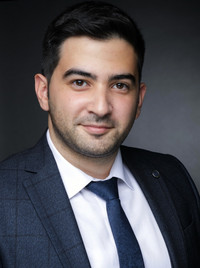Policy Brief Series on the European Council's Corona Crisis Management
Policy Brief Series - Part I
Recent dynamics during the EU’s corona crisis management have highlighted once again the European Council’s (EUCO) key role and steering function within the EU’s decision-making process. This policy brief provides an overview of the EUCO’s history-making decisions as well as an orientation on how to evaluate and assess them in light of typical patterns, narratives and dynamics of European integration.
Read our policy brief here.
Policy Brief Series - Part II
This policy brief aims to analyse and assess the history of the Multi-Annual Financial Framework (MFF) since the 1980s in a longer-term perspective. Moreover, it will examine the run-up to the MFF 2021-2027 in a shorter-term perspective from 2018 until early 2020. Herein special attention will be paid to the fast-track process towards the MFF and the creation of the revolutionary Recovery and Resilience Facility at the core of the NextGenerationEU, comprising the loan portfolio and 80% of the grants, from March 2020 to July 2020 in response to the outbreak of the coronavirus pandemic. To get a complete picture the policy brief also studies the roads from the European Council July meeting to the adoption of the necessary legal acts at the end of 2020 and until February 2021.
Read our policy brief here.
Policy Brief Series - Part III
In its July 2020 meeting, the European Council agreed on a financial mega deal, creating the Next Generation EU (NGEU) with the Recovery and Resilience Facility (RRF) at its heart and adopting the next Multiannual Financial Framework (MFF). Given the aims and amounts at stake, a main task for practitioners and academics is to study the RRF’s governance mechanisms and its impact on the institutional architecture of the European Union. The dynamics and constraints inbuild in the procedures are not only a question of academic curiosity but decisive for the success or failure of the whole RRF and thus the NGEU project.
Read our policy brief here.
Policy Brief No.1
The European Council has met on 12/13 December 2019 in Brussels to talk about climate change, the Multiannual Financial Framework (MFF), Brexit and external affairs.
Find a comprehensive analysis on the December European Council Meeting in our first Policy Brief.
Further information on the December 2019 European Council Meeting are available here.
Policy Brief No.2
The Special European Council Meeting on 20-21 February 2020 focussed on the EU's long-term budget for 2021-2027. In light of deep-routed controversies, the Head of State or Government has not been able to reach a compromise on the Multiannual Financial Framework (MFF).
"We have worked very hard to try to reconcile the different concerns, the different interests, the different opinions on the table. But we need more time" - Charles Michel, President of the European Council
Read our Policy Brief No.2 for a detailed analysis.
Further information on the February 2020 Special European Council Meeting are available here.
Policy Brief No.3
Since the outbreak of the Covid-19 pandemic, the members of the European Council have held four video
conferences (10 March, 17 March, 26 March and 23 April 2020) to coordinate effective European measures.
Read our Policy Brief No.3 for a detailed analysis of the March and April 2020 European Council Meetings.
Special Policy Briefs
How to understand the EU's Policy towards Turkey? An Analysis of the Leaders' Narratives

This policy brief aims to prevent that specific narrativeson the relationship between Turkey and the EU becometoo dominant without a broader reflection. At least in academia we need to look for possibilities of another shift in the years to come. In our set of narratives, we offer descriptions and characterizations in which positions and perceptions of the Member States identify the main topics of their attitudes towards the “key strategic partner” Turkey, respective EU strategies, and instruments how to deal with them.
Read our special policy brief here.
The European Council's role in the Brexit negotiations | Birgit Bujard
"The European Council played a very important role in these negotiations: beginning immediately after the referendum, it took the lead in shaping the new relationship with the United Kingdom by organising and structuring the Brexit process" - read the special policy brief on the European Council's role in the Brexit negotiations by Birgit Bujard (Alexander von Humboldt Foundation).
The European Union and the Corona Crisis | Herman van Rompuy

"The most difficult point was the recovery plan, which was passed on to the European Council, which once again became the arbiter or last resort" - read the special policy brief on the European Union and the Corona Crisis by the head of our Advisory Board and former president of the European Council Herman Van Rompuy.
The Origins of the European Council | Hartmut Marhold

"The systematic setting of the conditions, under which the European Council came into existence, is made of these two distinct components – external threats, challenges, incentives, on the one hand, and an internal integration logic on the other hand" - read the special policy brief on the origins of the European Council by the member of our Advisory Board Hartmut Marhold.
The role of the European Council in CSDP | Mathias Jopp
"There exists decent analysis of the role of EUCO in European integration as such but in the specialized field of security and defence its role seems a bit under-researched" - read the special policy brief on the role of the European Council in CSDP by Mathias Jopp (Institute for European Politics).
The European Council and the principle of solidarity | Aline Bartenstein

"Solidarity was inserted in the Constitutional Treaty at the instigation of the European Council. But how is solidarity actually addressed in the European Council?" Read the special policy brief on the European Council and the principle of solidarity by Aline Bartenstein (Institute for Peace Research and Security Policy).